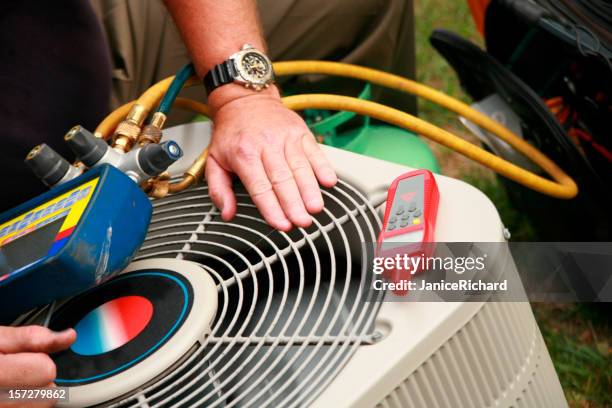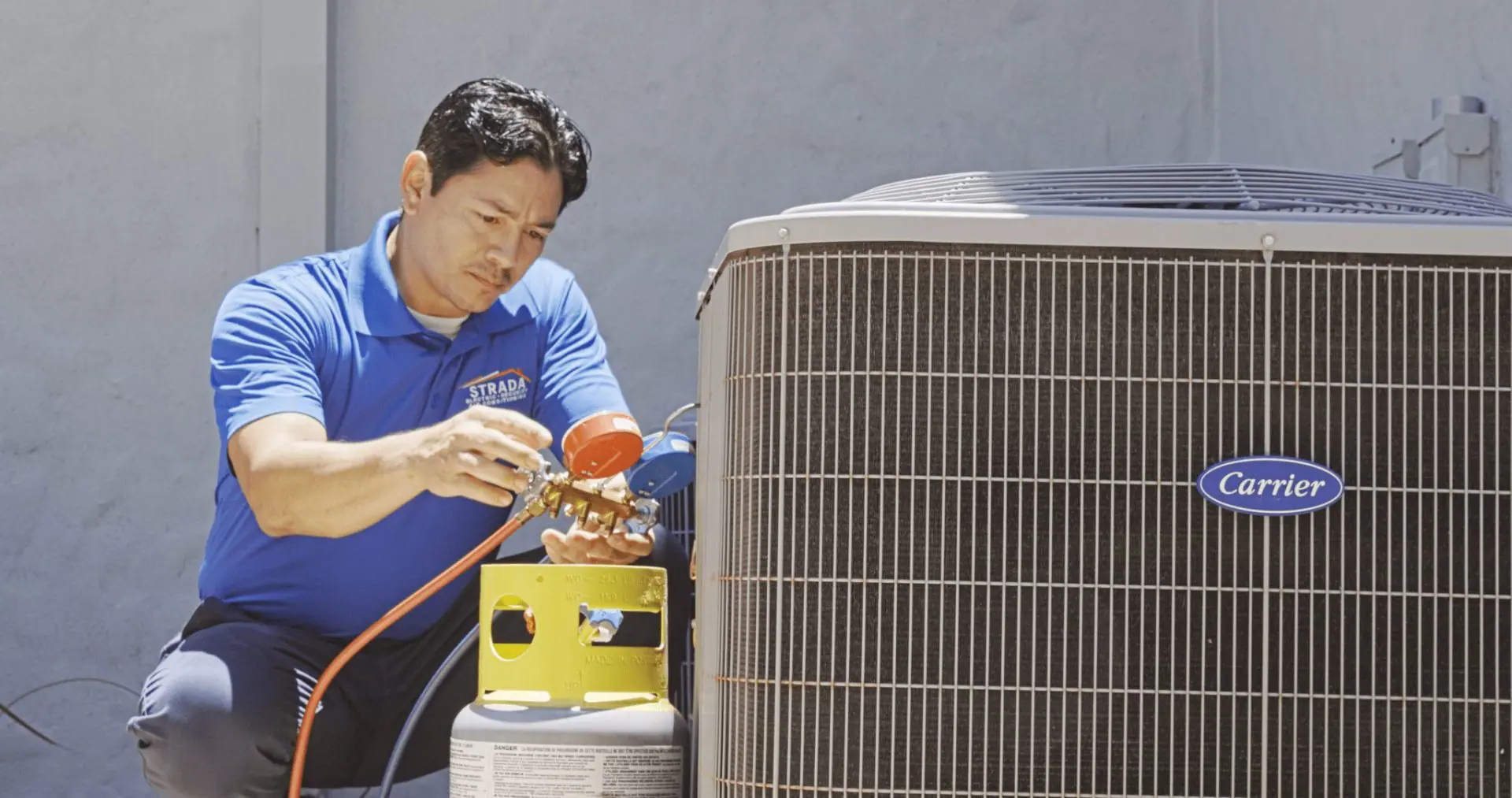Top 5 Things to Consider Before Your furnace replacement
Top 5 Things to Consider Before Your furnace replacement
Blog Article
Picking Between a Heatpump and Furnace: Key Factors To Consider for Your Heating And Cooling Demands
When assessing home heating choices for heating and cooling needs, the choice in between a heatpump and a heating system can be complicated. Each system uses unique benefits tailored to details climates and energy performance objectives. Comprehending these differences is necessary for making an informed choice. Secret aspects such as installation prices and ecological influence additionally complicate the choice process. Which choice truly lines up with one's comfort and sustainability preferences? The adhering to areas will check out these considerations in detail.
Recognizing Warm Pumps: Exactly How They Work and Their Advantages
While many house owners take into consideration different home heating alternatives, understanding how warmth pumps feature and their benefits can significantly affect their choice. Warm pumps operate by moving warmth as opposed to generating it. In the winter season, they draw out heat from the outdoors air or ground and transfer it indoors, while in the summer, they reverse this process, cooling the home by eliminating warmth outside. This double capability makes them flexible for year-round climate control.One of the primary benefits of warmth pumps is their energy effectiveness. They utilize substantially much less electricity compared to traditional heater, possibly causing reduced utility bills (ductless mini splits). Additionally, heatpump have a smaller sized carbon footprint, making them an environmentally friendly option. They also require much less upkeep than traditional systems, adding to long-lasting cost financial savings. Generally, recognizing the auto mechanics and benefits of heat pumps can assist house owners make notified decisions concerning their heating and cooling down requirements
Discovering Heaters: Types, Operation, and Benefits
Furnaces can be found in different kinds, including gas, electric, and oil versions, each with unique operational devices. Understanding these differences is vital, as they impact efficiency and heating efficiency. Additionally, heaters use many benefits, such as regular warm output and dependability in cooler environments.
Kinds of Heaters
Heating unit can vary considerably in design and procedure, with heating systems being a prominent choice amongst house owners. There are a number of kinds of furnaces, each making use of different gas sources and modern technologies. Gas furnaces prevail, leveraging natural gas to produce warmth efficiently. Electric heaters, on the other hand, make use of electric resistance to produce heat, usually favored for their uncomplicated installment. Oil heating systems, while much less typical, work in locations with limited gas accessibility (ductless mini splits). In addition, condensing heating systems make the most of energy effectiveness by capturing and reusing exhaust gases. Each type operates with a system of warm exchangers and ductwork to distribute cozy air throughout a home. Comprehending the distinctions in between these furnace types is crucial for educated HVAC decisions
Benefits of Furnaces
For homeowners looking for trustworthy heat throughout cool months, the advantages of heating systems are significant. Furnaces provide consistent heating, ensuring even temperature levels throughout the home. They are particularly reliable in severe cool, commonly outmatching heatpump in frigid conditions. Numerous kinds, consisting of gas, electrical, and oil heating systems, offer adaptability to fulfill diverse requirements and preferences.Furnaces also often tend to have reduced initial setup costs compared to heat pumps, making them a much more obtainable alternative for many. Their robust design contributes to a much longer life expectancy, with many systems lasting over 15 years with appropriate upkeep. In addition, contemporary heaters are commonly equipped with sophisticated modern technology for enhanced performance, which can result in minimized energy bills. On the whole, heaters continue to be a reputable selection for effective home heating.

Power Performance: Contrasting Warmth Pumps and Furnaces
When comparing power effectiveness between heat pumps and furnaces, the Seasonal Energy Performance Ratio (SEER) plays a crucial function in identifying efficiency. Furthermore, a functional expense analysis reveals the lasting economic implications of each system. Comprehending these variables can assist home owners in making notified choices concerning their heating remedies.
Seasonal Power Performance Proportion
Power effectiveness plays a crucial function in the decision-making procedure between warmth pumps and furnaces, especially when taking into consideration the Seasonal Energy Performance Ratio (SEER) This statistics measures the cooling performance of heatpump over a whole air conditioning period, giving a standardized means to assess efficiency. Higher SEER ratings suggest better energy effectiveness, converting to reduced power usage and minimized energy costs. On the other hand, heating systems are commonly examined utilizing the Annual Fuel Utilization Performance (AFUE) rating, which shows heating performance. When contrasting these 2 systems, house owners must focus on SEER scores for heat pumps, as they directly impact overall energy financial savings and ecological sustainability. A thorough understanding of SEER can significantly influence the lasting complete satisfaction and cost-effectiveness of the selected HVAC option.
Operational Cost Evaluation
Recognizing the operational costs connected with heat pumps and heating systems is important for home owners evaluating their alternatives. Warmth pumps normally use greater power effectiveness, converting electric energy right into warmth with minimal waste. This results in lower month-to-month utility bills, specifically in moderate climates. On the other hand, conventional heating systems, especially gas models, may have lower in advance costs however can sustain greater functional expenses over time due to sustain prices and effectiveness ratings.Moreover, warmth pumps can function as both heating and cooling down systems, potentially decreasing the demand for separate cooling and heating devices. While preliminary financial investments for heatpump might be greater, their long-term financial savings in energy efficiency can make them a much more cost-effective choice for many houses. Cautious analysis of neighborhood energy rates is important to figure out the that site very best choice.
Installation Costs: What to Anticipate for Each Heating Unit
Installment costs for heating systems can differ considerably in between heatpump and furnaces, influencing property owners' decisions. Warmth pumps normally have greater in advance installment expenses, usually varying from $3,500 to $8,000, depending on the system dimension and intricacy of installation. This consists of the outdoor system, indoor handling system, and needed ductwork alterations. Alternatively, furnaces tend to have lower first costs, balancing between $2,500 and $6,000, which can be appealing for budget-conscious property owners. However, installment costs can increase if substantial ductwork is required.Moreover, the option of gas kind for heating systems-- gas, propane, or electric-- can additionally affect setup prices. While heatpump use energy performance, their preliminary investment might hinder some purchasers. Inevitably, examining installment prices alongside lasting savings and efficiency will certainly help home owners in making notified choices regarding their heating unit.
Climate Considerations: Which System Does Much Better in Your Location
How do environment conditions influence the performance of home heating systems? The performance of heatpump and furnaces can vary greatly depending upon the regional climate. In moderate climates, heatpump stand out by efficiently moving warmth from the outdoors air, making them an energy-saving choice. Their performance decreases in incredibly cold temperatures, where they may have a hard time to remove enough heat. Alternatively, furnaces, specifically gas designs, supply reliable and regular heat regardless of exterior conditions, making them more effective in colder regions.In locations that experience milder winters months, warmth pumps can operate effectively year-round, supplying both heating & cooling. On the other hand, regions with harsh wintertimes often gain from the toughness of heaters. Eventually, comprehending the neighborhood environment is crucial when making a decision in between a heatpump and a heater, as it straight impacts their functional performance and general performance.
Upkeep Requirements: Long-Term Treatment for Warmth Pumps vs. Furnaces
While both heatpump and furnaces call for regular upkeep to guarantee peak efficiency, their details needs and care regimens differ substantially. Heaters generally need much less constant interest, with annual assessments sufficing to inspect for gas leaks, tidy filters, and assess overall performance. Their simpler design commonly allows for simple repairs.In comparison, heat pumps require biannual upkeep due to their dual function in heating & cooling. This includes cleansing coils, inspecting refrigerant levels, and making certain that both the exterior and interior devices work at their best. Additionally, heatpump maintenance often involves more detailed parts, making expert servicing essential.Neglecting upkeep can result in reduced efficiency and increased energy prices for both systems. Inevitably, property owners ought to take into consideration these lasting treatment requirements when picking in between a heatpump and a furnace, as aggressive upkeep can expand the life-span and efficiency of either system considerably.
Environmental Effect: Choosing a Lasting Home Heating Alternative
The ecological influence of furnace is a crucial assessment for property owners seeking lasting alternatives. Heatpump are typically much more energy-efficient than standard furnaces, as they transfer heat instead of generate it, significantly lowering carbon emissions. By utilizing renewable power resources, such as air-source or geothermal heatpump, property owners can even more lessen their eco-friendly footprint.On the various other hand, all-natural gas heating systems discharge greenhouse gases and add to air pollution, though they commonly offer greater warm result. However, improvements in technology have caused the advancement of high-efficiency furnaces that decrease emissions.Ultimately, choosing a home heating system includes evaluating efficiency against ecological effect. House owners are motivated to show on neighborhood power sources and rewards for sustainable systems, guaranteeing an option that lines up with both individual comfort and environmental responsibility. The decision impacts not only instant comfort however also long-term sustainability and ecological health and wellness.
Often Asked Inquiries
The Length Of Time Do Heat Pumps and Furnaces Usually Last?
The lifespan of warmth pumps typically varies from 15 to 20 years, while heating systems can last in between 15 to thirty years. Routine upkeep visit this site right here considerably influences their longevity and performance in giving heating options.
Can I Use a Heatpump in Extremely Cold Climates?
Heat pumps can run in incredibly cool climates, but their performance diminishes as temperatures decline. find more information In such problems, additional home heating resources may be needed to keep comfortable interior temperatures and assure peak efficiency.

What Is the Noise Level of Warmth Pumps Versus Furnaces?
The noise degrees of warmth pumps and heating systems vary substantially. Typically, heatpump run more silently than standard heating systems, making them more effective for those sensitive to appear, while heaters may generate louder functional noises during heating cycles.
Are Warm Pumps Suitable for Both Heating and Cooling?
Warm pumps are certainly ideal for both home heating and air conditioning (heat pump service). They operate by moving heat, supplying reliable temperature control year-round, making them a functional option for homeowners seeking an all-in-one heating and cooling remedy
What Dimension Heating Unit Do I Required for My Home?
Figuring out the suitable dimension heater for a home requires assessing aspects such as square video, insulation top quality, local environment, and the home's format. Consulting an expert can guarantee a precise evaluation and suitable comfort. Heat pumps typically supply higher energy performance, converting electric energy into heat with minimal waste. In moderate environments, warm pumps stand out by efficiently moving warmth from the outside air, making them an energy-saving option. Conversely, heating systems, especially gas versions, give consistent and reliable warm no matter of outdoor problems, making them more effective in cooler regions.In locations that experience milder winter seasons, heat pumps can operate effectively year-round, providing both heating and cooling. Heat pumps are generally extra energy-efficient than conventional heaters, as they transfer warm rather than create it, greatly lowering carbon exhausts. By making use of eco-friendly power sources, such as geothermal or air-source heat pumps, house owners can even more decrease their eco-friendly footprint.On the various other hand, all-natural gas furnaces give off greenhouse gases and add to air pollution, though they usually give higher warm result.
Report this page